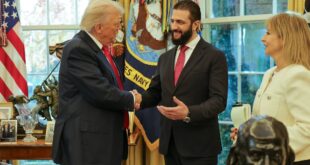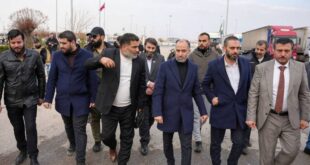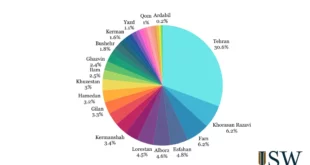BASRA (Reuters) — Gunmen clashed on Thursday in the port city of Basra, the hub of Iraq’s great southern oil field that is the source of most of the country’s wealth.
Police patrols warned residents to stay inside and said an indefinite curfew had been imposed.
Gunmen attacked the headquarters of Fadhila, a small but powerful party that controls the provincial governorate and withdrew from the ruling Shiite alliance earlier this month, witnesses said.
The fighting erupted just two days after British forces pulled out of their base in the centre of Basra, Iraq’s second city, and handed it over to the Iraqi 10th division in what a British general called an important step towards Iraqis taking control of their own security.
Hospital sources said seven people had been wounded in the clashes, which residents said lasted nearly an hour. Shortly after midday the intense gunfire dwindled to sporadic shooting.
Police Brigadier Ali Ibrahim said police and soldiers were being deployed in the area of the clashes.
British military spokesman Major David Gell said: “We are aware something is happening but we don’t have any more information,” adding that multinational forces were standing by.
Basra, whose oil accounts for virtually all of Iraq’s state revenues with northern export pipelines crippled by rebel bombings, is a major prize for all parties.
Â
‘Misunderstanding’
Â
Details of the fighting were sketchy but Ali Hamadi, the head of Basra’s emergency security committee, blamed it on a “misunderstanding” between Fadhila and the Mehdi Army of Shiite cleric Moqtada Sadr.
A Shiite official in Baghdad said the two groups were fighting over one of the buildings vacated by the British troops on Tuesday, although this could not be immediately confirmed.
Officials of Sadr’s movement and the Fadhila Party sought to play down the violence.
“Whatever is happening, there is no problem between us and the Sadrists. There is no way we would clash with them,” said Nadim Jabiri, a senior official of Fadhila.
Salaam Maliki, a Sadrist and former transport minister, blamed the fighting on a personal dispute between the director general of the electricity directorate and an engineer.
“The picture is not clear. It seems the engineer has brought members of his tribe. It is a tribal thing, not political. We have asked the governor to send the police to stop the fighting,” he told Reuters.
British Prime Minister Tony Blair said in February that Britain would begin withdrawing a quarter of its 7,000 troops stationed mainly in and around Basra, although some analysts and residents questioned whether the move was premature.
While Basra has not experienced the levels of violence seen in the capital Baghdad, criminal gangs have taken root amid fighting between rival Shiite factions and political parties for control of its vast oil wealth.
General Jonathan Shaw, the commander of British forces in the south, warned earlier this week that one of the main obstacles to Iraqis taking full control of Basra was the perception that the province was lawless.
 Eurasia Press & News
Eurasia Press & News


